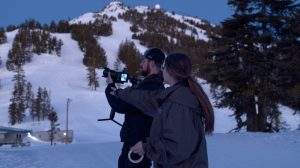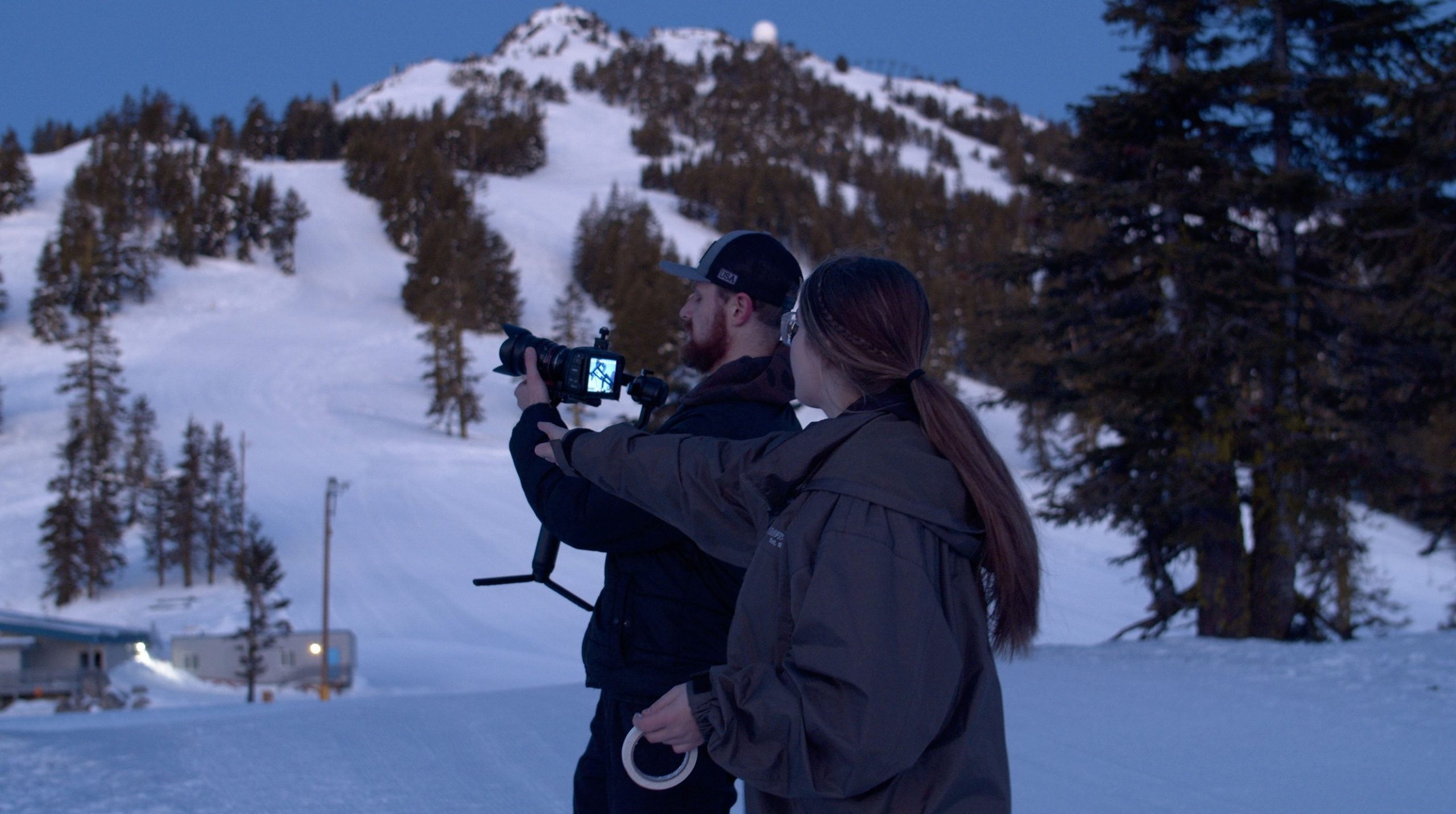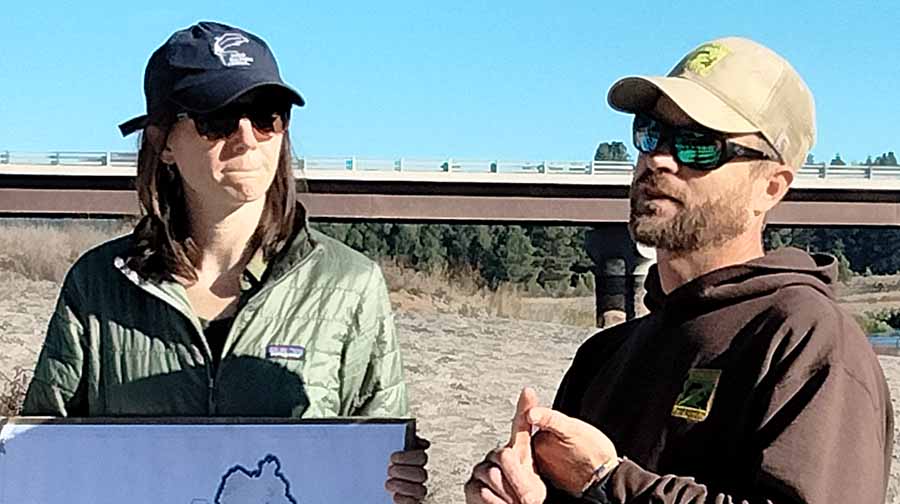After multiple renewals, tax originally approved by voters in 1993 now expires in 2030 unless changed again
By Damian Mann for Ashland.news
A debate among Ashland City Councilors is already heating up over a prospective ballot measure that might ask voters to approve a permanent food and beverage tax.
The existing 5% food and beverage tax, originally approved by voters in 1993 but renewed several times, provides about $3 million a year in revenue and will sunset in 2030.
Projects funded by the food and beverage tax over the last 10 years
Public Works: Street reconstruction — administration, design and construction
• Hersey Street — $4.18 Million
• Ashland Street — $4.66 Million
Future projects include:
• North Mountain Ave (2025)
• Oak Street (2026)
• Siskiyou Boulevard (2027)
Parks & Recreation
• Daniel Meyer Memorial Pool and rebuild — $166,789
• East Main Park development — $317,004
• Garfield Park splash pad — $864,482
• Hunter Park playground — $67,219
• Hunter Park Tennis Court rehabilitation — $19,757**
• Hunter Park Tennis Court resurfacing — $97,743
• Irrigation (alternative sources) — $22,133
• Irrigation central controller —$262,095
• Japanese Garden in Lithia Park — $1.9 Million ($1.3 million grant funded)*
• Kestrel Pedestrian Bridge — $42,384*
• Lithia Park improvements — $28,500
• Lithia Park master plan — $250,283
• North Mountain Park culvert failure — $152,104
• North Mountain Park nature play area — $27,725*
• Oak Knoll Golf Course / clubhouse improvements — $85,883
• Oak Knoll Golf Course irrigation and drainage — $93,166
• Parks (all inclusive) master plans — $45,756**
• Playground slide at Briscoe Park — $266,893**
Note: The projects listed above include only those with payouts of approximately $20,000 or more.
*F&B and grant funded
** Projects to be completed within the next two years
The tax, which is collected at restaurants, grocery store delis, caterers and coffee shops, is on prepared foods and nonalcoholic beverages. Businesses retain 5% of the tax collected to help pay for accounting.
It has provided money for capital projects for parks, streets and the wastewater treatment plant.
“I’d like to see this tax in perpetuity,” Councilor Eric Hansen said at a joint meeting last Tuesday of the City Council and Parks & Recreation Commission.
At present, 25% of the money goes directly to the Parks & Recreation Department to support the development and rehabilitation of local parks and open spaces, and 75% goes toward maintaining and repairing streets.
“It’s an amazing amount of money that’s gone into our community,” Hansen said. “We should put it in the books forever.”
Amid budget problems at the city and with parks, councilors wondered if the tax could be applied more broadly than just for capital projects.
“Could we modify it to be more for operational and not just capital?” Councilor Jeff Dahle said, suggesting that the current capital spending is “tying our hands.”
Councilor Gina DuQuenne said, “I would like us to have a hefty discussion about this.”
Some of the many recent projects the tax has helped build in the past 10 years include repaving of Hersey and Ashland streets, which together cost almost $9 million, or a portion of the recent $1.9 million to improve the Japanese Gardens.
Garfield Park’s $864,482 splash pad was also paid out of food and beverage taxes, as well as many other projects at neighborhood parks.
East Main Park, which is scheduled to be built, received $317,000 of the tax to help its development.
North Mountain Avenue, Oak Street and Siskiyou Boulevard are also set for future repaving projects because of the food and beverage tax.
Parks Commissioner Rick Landt said the definition of “capital projects” in the current food and beverage tax is fairly broad.
He said it could be applied to deferred maintenance on buildings, such as new roofs or painting.
Landt said changing the current formula of spending the food tax could be politically problematic.
Councilor Dylan Bloom proposed a new formula that would provide up to 25% for parks operational costs to use however needed, no less than 25% for building the new water treatment plant and the remainder for capital improvement projects for streets, parks or other city projects.
Bloom said this formula would provide greater flexibility for the city and provides additional money for parks operations, which could see more cutbacks in operations in the next few years.
“It kind of unties our hands for capital, in general,” he said.
DuQuenne, in response to Bloom’s proposal, said, “100% agree with that.”
She said putting 25% toward the new water treatment plant would relieve the burden on utility ratepayers who are paying higher water bills to pay for construction of the plant.
“Ratepayers are the ones who are carrying this load,” she said.
Parks Commissioner Dan Weiner said he wasn’t sure that a flexible capital fund would work because parks projects are planned years in advance.
He said parks has relied on the 25% it receives from the food and beverage tax for future planning of capital projects.
“We will not be knowing if we would have that asset,” he said.
Parks Commissioner Mike Gardiner said the city would essentially be taking away the ability for parks to plan ahead for projects.
Councilor Bob Kaplan said, “I would urge a lot more caution going into this.”
At Bloom’s suggestion, the council agreed to hold a town hall in the next few months to get public feedback on the future of the food and beverage tax.
While the food and beverage tax has been renewed several times over the years, in 2023 voters, by slight margin, rejected a measure to amend the ordinance to allow funds to be used for Parks & Recreation operations and extend the sunset date to Dec. 31, 2040.
Mayor Tonya Graham said 2030 is not that far away, and the council needs to make a proposal that would be put before voters in advance of this deadline.
“People want to know what it is going to be spent on,” she said.
Graham said the city prepares a list of capital improvement projects that is very deliberate based on a number of factors.
“Following a CIP (capital improvement projects) is how we avoid deferred maintenance,” she said.
Reach freelance writer Damian Mann at [email protected].


















